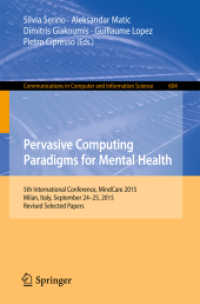- ホーム
- > 洋書
- > ドイツ書
- > Humanities, Arts & Music
- > Linguistics
- > general surveys & lexicons
Description
(Text)
Intellectually, myth is understood as a traditional, fictional story ("a legend", literary myth), a body of traditional beliefs of a particular subject ("mythology", "tradition", cultural myth), or any fictitious idea accepted as part of an ideology of a certain social group ("received idea", Hobsbawm's "invented tradition"; political myth). Syncretic and ahistorical by nature, myth is - paradoxically enough - something which is fictional (i.e. which never existed, except in a language), but is taken as the truth (i.e. which always existed / circulated as the final and unquestionable truth about the world). From the point of view of cultural history, mythical knowledge (literary, cultural or political) can be understood as a type of collective memory which operates as a shared repository of cultural identities, defines a certain social and national group and is sustained through a continuous production of representational forms. In this volume, our aim is to challenge and expand this understanding of myth by assuming that for their consumers (i.e. for the members of a society) mythical knowledge also represents a certain repository of feelings. Art and literature, analyzed in this volume, are therefore treated as the sensible distribution of sensible (Jacques Rancière, 2004, The Politics of Aesthetics: "The Distribution of the Sensible").








